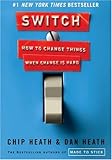Don't solve problems. Copy success.
I think we spend too much time analysing the problem of the decline of Christianity in the west. Too much time deconstructing and conceptualizing. It's not a mind game.
We should be asking: Where do we see the gospel advancing, disciples made and churches multiplied? How can we get more of that? How can we serve what God is already doing?
Here's a story by Fast Company on Jerry Sternin (above) that illustrates the point.
When Jerry Sternin arrived in Vietnam, the welcome was rather chilly. The government had invited his employer, Save the Children, the international organization that helps kids in need, to open an office in the country in 1990 to fight malnutrition. But the foreign minister let Sternin know that not everyone in the government appreciated his presence. The minister told him, "You have six months to make a difference."
Sternin had traveled to the country with his wife and 10-year-old son. None of them spoke the language. "We were like orphans at the airport when we arrived in Vietnam," he said. "We had no idea what we were going to do." Sternin had minimal staff and meager resources.
The conventional wisdom was that malnutrition was the result of an intertwined set of problems: Sanitation was poor. Poverty was nearly universal. Clean water was not readily available. The rural people tended to be ignorant about nutrition.
That analysis was, in Sternin's judgment, TBU -- true but useless. "Millions of kids can't wait for those issues to be addressed," he said. If addressing malnutrition required ending poverty and purifying water and building sanitation systems, then it would never happen.
Especially in six months, with virtually no money to spend.
When it's time to change, we must look for bright spots -- the first signs that things are working. We need to ask ourselves a question that sounds simple but is, in fact, deeply unnatural: What's working and how can we do more of it?
read on . . .

"Switch: How to Change Things When Change Is Hard" (Chip Heath, Dan Heath)

